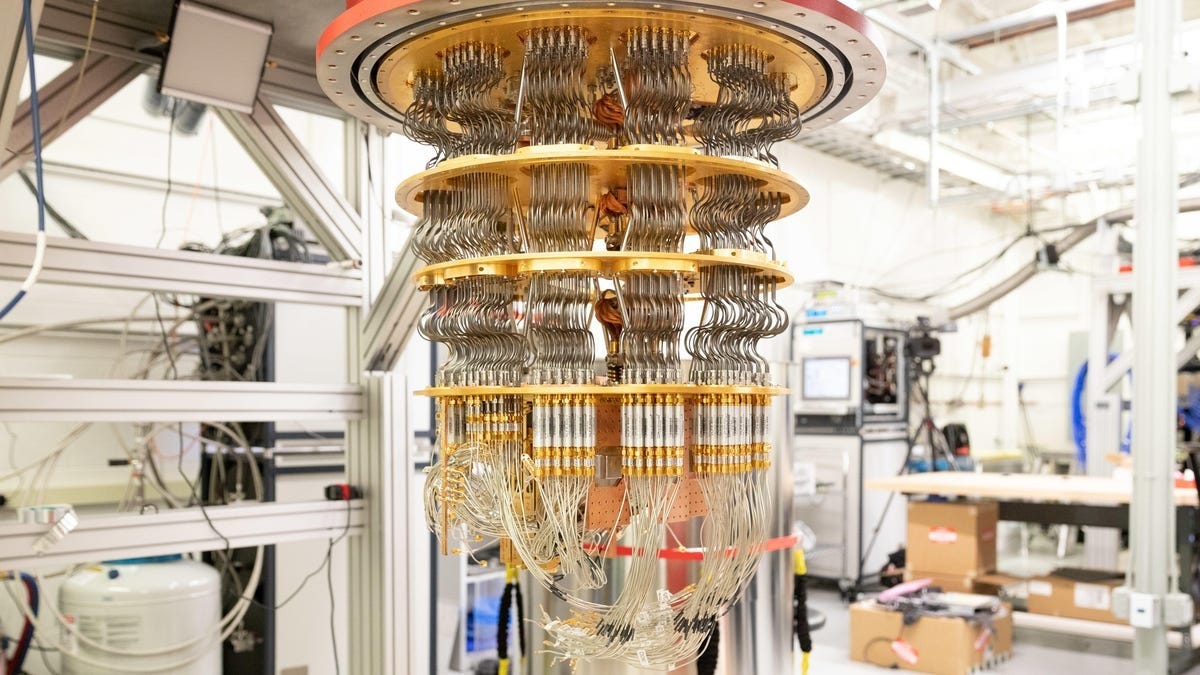I am not an expert on quantum computing … but I saw an impressive photo of Google's new quantum computer, and thought it was worth diving a bit deeper.

Google's computer stands at the forefront of computing technologies. This extraordinary device boasts 70 qubits, a significant improvement over the previous 2019 model, which had 53 qubits. A qubit is the quantum world's answer to classical bits. Not to dive too deep, but as you increase the number of qubits in a model, the possible states a quantum computer can hold simultaneously grows exponentially (due to quantum entanglement,) allowing it to perform faster calculations.
So, while 70 qubits don't sound like that much, it calculates exponentially faster than normal computers. For some context, Google's team used a synthetic benchmark called random circuit sampling to test the system's speed, and the results showed that they could perform calculations in seconds that would take the world's most powerful supercomputer, Frontier, 47 years.
Four years ago, Google announced that they'd reached quantum supremacy, a benchmark demonstrating that a programmable quantum device could solve a problem impossible for classical computers to solve within a practical timeframe. It took less than five years to successfully establish the technological feasibility of quantum computers.
But, it's an exciting horizon for us to walk towards.
Onwards!

Leave a Reply